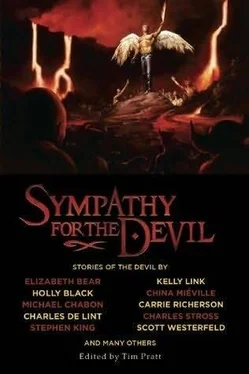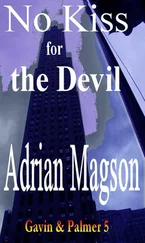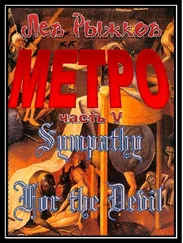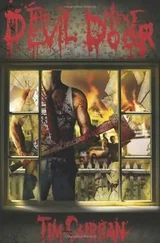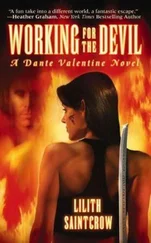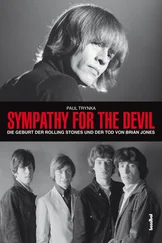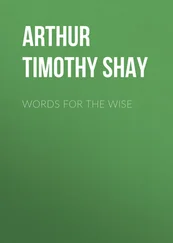“All right,” Martin sighed. “I can’t blame you for my mistakes. On the other hand, you can’t take credit for what happened, either. I worked for everything I got. I did it all on my own. I didn’t even need your watch.”
“So you didn’t,” the Conductor said, smiling. “But would you mind giving it back to me now?”
“Need it for the next sucker, eh?” Martin muttered.
“Perhaps.”
Something about the way he said it made Martin look up. He tried to see the Conductor’s eyes, but the brim of his cap cast a shadow. So Martin looked down at the watch instead.
“Tell me something,” he said, softly. “If I give you the watch, what will you do with it?”
“Why, throw it into the ditch,” the Conductor told him. “That’s all I’ll do with it.” And he held out his hand.
“What if somebody comes along and finds it? And twists the stem backward, and stops Time?”
“Nobody would do that,” the Conductor murmured. “Even if they knew.”
“You mean, it was all a trick? This is only an ordinary, cheap watch?”
“I didn’t say that,” whispered the Conductor. “I only said that no one has ever twisted the stem backward. They’ve all been like you, Martin-looking ahead to find that perfect happiness. Waiting for the moment that never comes.”
The Conductor held out his hand again.
Martin sighed and shook his head. “You cheated me after all.”
“You cheated yourself, Martin. And now you’re going to ride that Hell-Bound Train.”
He pushed Martin up the steps and into the car ahead. As he entered, the train began to move and the whistle screamed. And Martin stood there in the swaying Pullman, gazing down the aisle at the other passengers. He could see them sitting there, and somehow it didn’t seem strange at all.
Here they were: the drunks and the sinners, the gambling men and the grifters, the big-time spenders, the skirt-chasers, and all the jolly crew. They knew where they were going, of course, but they didn’t seem to give a damn. The blinds were drawn on the windows, yet it was light inside, and they were all living it up-singing and passing the bottle and roaring with laughter, throwing the dice and telling their jokes and bragging their big brags, just the way Daddy used to sing about them in the old song.
“Mighty nice traveling companions,” Martin said. “Why, I’ve never seen such a pleasant bunch of people. I mean, they seem to be really enjoying themselves!”
The Conductor shrugged. “I’m afraid things won’t be quite so jazzy when we pull into that Depot Way Down Yonder.”
For the third time, he held out his hand. “Now, before you sit down, if you’ll just give me that watch. A bargain’s a bargain-”
Martin smiled. “A bargain’s a bargain,” he echoed. “I agreed to ride your train if I could stop Time when I found the right moment of happiness. And I think I’m about as happy right here as I’ve ever been.”
Very slowly, Martin took hold of the silver watch-stem.
“No!” gasped the Conductor. “No!”
But the watch-stem turned.
“Do you realize what you’ve done?” the Conductor yelled. “Now we’ll never reach the Depot! We’ll just go on riding, all of us-forever!”
Martin grinned. “I know,” he said. “But the fun is in the trip, not the destination. You taught me that. And I’m looking forward to a wonderful trip. Look, maybe I can even help. If you were to find me another one of those caps, now, and let me keep this watch-”
And that’s the way it finally worked out. Wearing his cap and carrying his battered old silver watch, there’s no happier person in or out of this world-now and forever-than Martin. Martin, the new Brakeman on That Hell-Bound Train.
The God of Dark Laughter by Michael Chabon
Thirteen days after the Entwhistle-Ealing Bros. circus left Ashtown, beating a long retreat toward its winter headquarters in Peru, Indiana, two boys out hunting squirrels in the woods along Portwine Road stumbled on a body that was dressed in a mad suit of purple and orange velour. They found it at the end of a muddy strip of gravel that began, five miles to the west, as Yuggogheny County Road 22A. Another half mile farther to the east and it would have been left to my colleagues over in Fayette County to puzzle out the question of who had shot the man and skinned his head from chin to crown and clavicle to clavicle, taking ears, eyelids, lips, and scalp in a single grisly flap, like the cupped husk of a peeled orange. My name is Edward D. Satterlee, and for the last twelve years I have faithfully served Yuggogheny County as its district attorney, in cases that have all too often run to the outrageous and bizarre. I make the following report in no confidence that it, or I, will be believed, and beg the reader to consider this, at least in part, my letter of resignation.
The boys who found the body were themselves fresh from several hours’ worth of bloody amusement with long knives and dead squirrels, and at first the investigating officers took them for the perpetrators of the crime. There was blood on the boys’ cuffs, their shirttails, and the bills of their gray twill caps. But the country detectives and I quickly moved beyond Joey Matuszak and Frankie Corro. For all their familiarity with gristle and sinew and the bright-purple discovered interior of a body, the boys had come into the station looking pale and bewildered, and we found ample evidence at the crime scene of their having lost the contents of their stomachs when confronted with the corpse.
Now, I have every intention of setting down the facts of this case as I understand and experienced them, without fear of the reader’s doubting them (or my own sanity), but I see no point in mentioning any further anatomical details of the crime, except to say that our coroner, Dr. Sauer, though he labored at the problem with a sad fervor was hard-put to establish conclusively that the victim had been dead before his killer went to work on him with a very long, very sharp knife.
The dead man, as I have already mentioned, was attired in a curious suit-the trousers and jacket of threadbare purple velour, the waistcoat bright orange, the whole thing patched with outsized squares of fabric cut from a variety of loudly clashing plaids. It was on account of the patches, along with the victim’s cracked and split-soled shoes and a certain undeniable shabbiness in the stuff of the suit, that the primary detective-a man not apt to see deeper than the outermost wrapper of the world (we do not attract, I must confess, the finest police talent in this doleful little corner of western Pennsylvania)-had already figured the victim for a vagrant, albeit one with extraordinarily big feet.
“Those cannot possibly be his real shoes, Ganz, you idiot,” I gently suggested. The call, patched through to my boarding house from that gruesome clearing in the woods, had interrupted my supper, which by a grim coincidence had been a Brunswick stew (the specialty of my Virginia-born landlady) or pork and squirrel. “They’re supposed to make you laugh.”
“They are pretty funny,” said Ganz. “Come to think of it.” Detective John Ganz was a large-boned fellow, upholstered in a layer of ruddy flesh. He breathed through his mouth, and walked with a tall man’s defeated stoop, and five times a day he took out his comb and ritually plastered his thinning blond hair to the top of his head with a dime-size dab of Tres Flores.
When I arrived at the clearing, having abandoned my solitary dinner, I found the corpse lying just as the young hunters had come upon it, supine, arms thrown up and to either side of the flayed face in a startled attitude that fuelled the hopes of poor Dr. Sauer that the victim’s death by gunshot had preceded his mutilation. Ganz or one of the other investigators had kindly thrown a chamois cloth over the vandalized head. I took enough of a peek beneath it to provide me with everything that I or the reader could possibly need to know about the condition of the head-I will never forget the sight of that monstrous, fleshless grin-and to remark the dead man’s unusual choice of cravat. It was a giant, floppy bow tie, white with orange and purple polka dots.
Читать дальше
